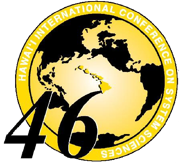E-Government Education, Training, & Professionalization Minitrack

Co-chairs
Tomasz Janowski (Primary Contact)
Center for Electronic Governance, UNU-IIST
P.O. Box 3058, Macao SAR, China
Phone: +853-2871-2930
Fax: +853-2871-2940
Email: tj@iist.unu.edu
Wojciech Cellary
Department of Information Technology, Poznań University of Economics
Mansfelda 4, 60-854 Poznań, Poland
Phone: +48 61 8480549 int. 11
Email: cellary@kti.ue.poznan.pl
Jim Davies
Computing Laboratory
Oxford University
Wolfson Building, Parks Road, Oxford OX1 3QD, United Kingdom
Phone: +44 1865 283521
Fax: +44 1865 283531
Email: jim.davies@comlab.ox.ac.uk




Over the past two decades, the objectives of the public sector investment into information technology and e-government have evolved from increasing the quality and efficiency of internal government operations, through delivering better public services and making them available across traditional and electronic channels, to facilitating administrative and institutional reform, engaging citizens in policy- and decision-making processes, and (more recently) directly supporting policy and development goals within and across the health, education, economy, security and other sectors. In order to respond to such objectives, contributions from an increasing range of actors including political and government leaders, public managers, agency staff (management, technical and service-level), business and non-profit partners, citizens and others are required. To this end, however, the actors should understand their roles, possess competences (knowledge, skills and attitudes) required to fulfill the responsibilities associated with their roles, and be able to work together and across different roles.
The mini-track will focus on the acquisition, utilization and continued development of the competences required from various actors and roles involved in planning, development and usage of public sector information technology and e-government. Of interest are enquiries and cases related to: actors and their responsibilities and roles; competencies requirement by different roles; competency-building approaches including academic and professional education, training, apprenticeship and capacity building; body of knowledge, competency frameworks and curriculum development; pedagogical approaches, learning innovation, technology and gaming; assessment methods, certification and licensing; and others. In addition, of interest are enquiries and cases related to the organizational environment: continued and institutionalized learning; competency-based personnel management; accreditation; professional societies and associations; internationalization and competency transfer.
Topics and research areas include, but are not limited to:
-
-E-government stakeholders and competency needs
-
-E-government knowledge requirements
-
-Literacy and skills for e-government
-
-E-competency frameworks and architectures
-
-E-government body of knowledge
-
-Curriculum design, maintenance and integration for e-government
-
-Planning and design of e-government training programs
-
-Planning and design of e-government education programs
-
-Learning methods, classroom innovation and pedagogy for e-government
-
-Open learning in e-government
-
-Nation’s report card
-
-Technology, gaming and simulation in e-government learning
-
-Academic, professional and continued e-government education
-
-Development of e-government profession
-
-Professional and career development in e-government
-
-E-government competency-based management
-
-Retraining government practitioners for e-government
-
-E-government education policy and leadership
-
-Accreditation and licensing for e-government
-
-Government Chief Information Officer profession
-
-Conceptual and theoretical foundations for e-government education
-
-Benchmark and case studies in e-government education
-
-Foresight studies and future of e-government education
More co-chair information
Tomasz Janowski, PhD, is a Senior Research Fellow at United Nations University - International Institute for Software Technology in Macao where he founded and heads the Center for Electronic Governance (EGOV). He directs and carries out research focusing on EGOV development frameworks, EGOV education, EGOV for sustainable development and others; transfers research results into practicalinstruments; and applies such instruments in government policy and practice. Through his projects funded by Macao Foundation, World Bank, Microsoft, UNDP, European Commission and several national governments, he contributed to EGOV awareness- and capacity-building in many developing countries. He founded and coordinates International Conference series on Theory and Practice of Electronic Governance (ICEGOV), and is an associate editor of Government Information Quarterly. For more information, visit http://unu.edu/faculty/tomasz-janowski.
Wojciech Cellary, PhD, is a computer scientist, head of the Department of Information Technology at the Poznan University of Economics. In his professional career he worked at nine universities in Poland, France, and Italy. His research interests are currently focused on electronic business and government, information society, Internet technologies, and multimedia. He is an author of 11 books and over 150 scientific papers. He gives lectures on electronic business to over 700 students per year. He was a leader of many national and international scientific and industrial projects. He served as a consultant to several Polish ministries, Polish Parliament and Senate, as well as European Commission. He has been a main organizer of 37 scientific national and international conferences including last year the 6th European Ministerial eGovernment Conference and Exhibition “Borderless eGovernment Services for Europeans”, Poznan, Poland, which is a major European event in the area of e-government.
Jim Davies, PhD, studied mathematics at New College, Oxford, joining the Computing Laboratory in 1986 for a Masters' and doctorate. After working as a researcher and lecturer in computer science, at Oxford and Reading, he became a lecturer in software engineering at Oxford in 1995. He has led the Software Engineering Programme since 2000, and was made Professor of Software Engineering in 2006. Jim directs a programme of advanced, professional education in software engineering, teaching advanced techniques to people working full-time in industry. He is leading the development of semantics-driven technology for medical research and electronic governance, and a related programme of work into the automatic generation of systems from re-usable models of structure and functionality.



“Education is the Key Element in the Knowledge Economy of the 21st Century”




